Ever wondered, ‘If one credit bureau removes a debt do the others have to remove the debt too?’ There are three credit bureaus, and each maintains separate records for nearly 220 million Americans. The three major credit bureaus are Equifax, Transunion, and Experian.
Consumers have the right to dispute the information when a reporting agency reports a debt. When someone disputes a debt, the credit bureau does an investigation. If the creditor does not respond within the credit bureaus’ timeframe, the reporting agency removes the debt from the individual’s credit report.
Read this guide to find out whether a credit bureau has to remove an item if the other two do, how to ensure all of your credit profiles match, and how to dispute items on your credit report properly.
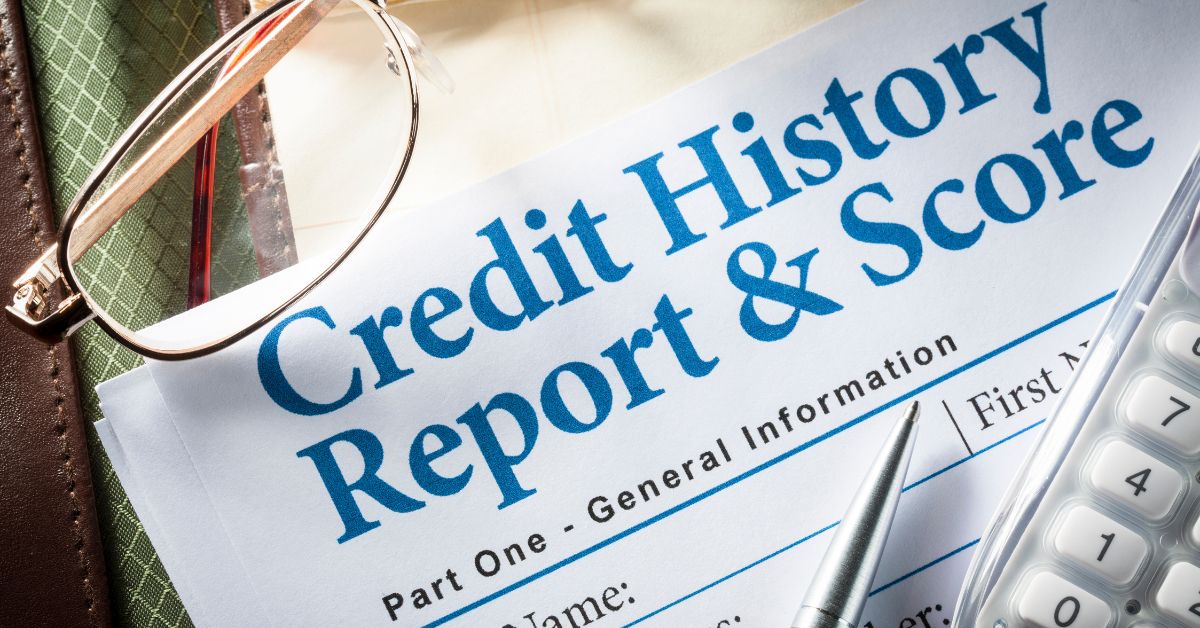
Do Credit Bureaus Remove Negative Items If One Does?
Believe it or not, just because one credit bureau removes something from your credit report does not mean the rest have to. Each of these agencies has its records, and they do not share information.
So, one reporting agency can give you a 630 score; on another, your score can be 710, and the accounts and payment history may not match.
Why One Credit Bureau Removes a Debt but the Others Won’t
Knowing why one bureau removes a debt, and the others don’t can help you address these situations.
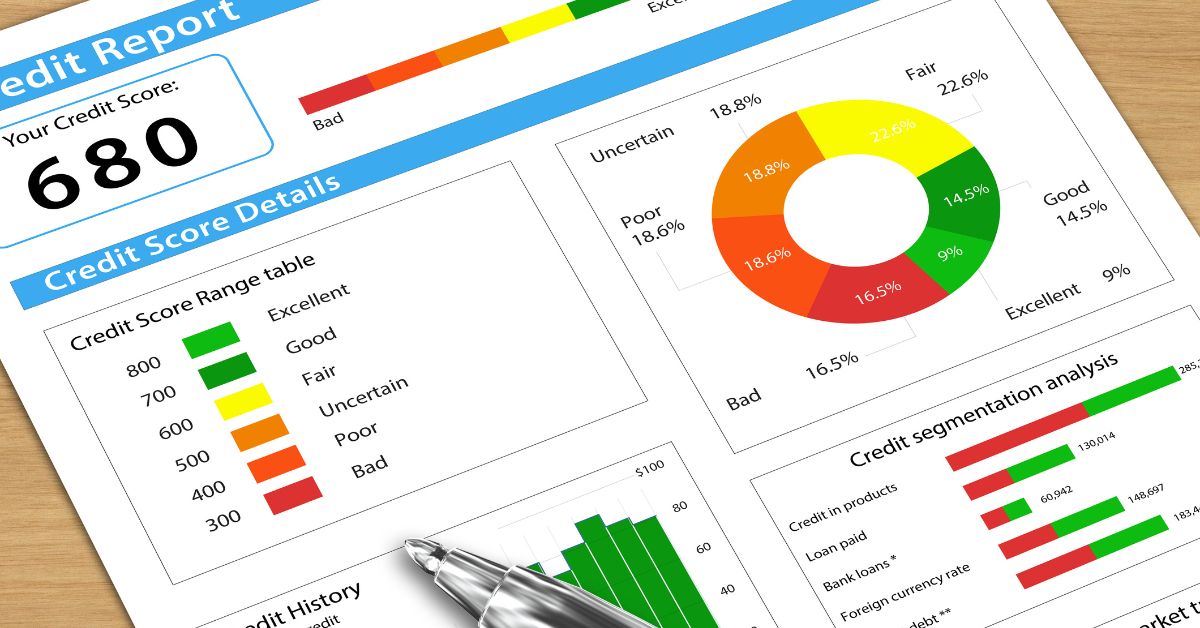
Disputes
If you only dispute negative information with one bureau, the others will not remove the item from the others. Remember, the credit bureaus work independently. So, they share no information.
Creditor Reporting
Each creditor does not report to all three of the bureaus. So, it is not uncommon for your credit files to differ even if you have never done a dispute.
Debts Aging Out
Debts are taken off of your credit report after seven to ten years. However, account dates may differ on each of the bureaus. So, an account showing seven years old on Equifax may only be six years old on Transunion or Experian, meaning the debt is still relevant to them.
Debts Sold
When a creditor sells a debt, it can appear as a new debt under a different name. When debt is sold, the new creditor often reports the account as new debt, even if it is years old. In these cases, it may appear on your report for years longer than it should.
How to Ensure an Item is Removed From all Your Credit Reports
If you have negative items on your report that you want to dispute, make sure you dispute them with all three credit bureaus simultaneously. If you have been an identity theft victim and have documentation, be sure to provide that to the credit bureau.
When are all Three Bureaus Required to Remove a Credit Item?
All three credit bureaus follow Federal Credit Reporting Act (FCRA) guidelines for removing derogatory information. However, there are different timelines for removing items. The table below gives the timeframes for how long positive and negative information remains relevant on your credit profiles.
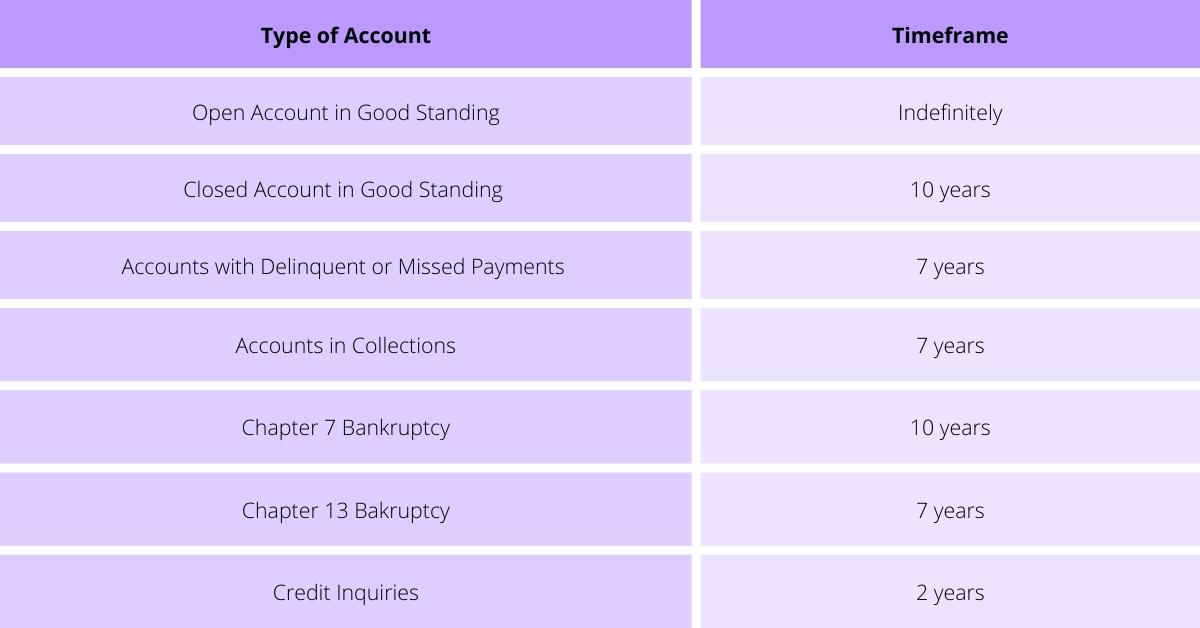
How Long Does It Take When a Credit Bureau Removes Something?
After you submit a dispute, the creditor has 30 days to respond with proof that the account information is accurate. The credit reporting agency will remove it if they do not respond during that timeframe. So, it can take 30 to 45 days for an item you dispute to come off your report.
When Should You Not Dispute Credit Information?
While disputing debts can help remove derogatory items from your report, it is not the best way to handle your debt. If you are the lawful owner of an account, the creditor will likely respond with the information necessary to verify. So, it is unlikely the debt will be removed. Furthermore, while a dispute will not negatively impact your credit scores, if the creditor responds with information that impacts your profile negatively, that could cause your score to drop.
A better way to handle accurate negative information is to negotiate a settlement of the account with the creditor. Paying off a debt will remove the derogatory standing of the account and likely raise your score.
If the debt is older than 24 months, it has less of an impact on your score, and it might be best to wait until the debt falls off your reports.
Tips to Ensure Your Credit Report is Accurate
The best way to ensure your credit report is accurate is to make sure that you make all payments on time. That way, you know you should not have any negative information on your reports. You should also be careful with your personal information to prevent identity theft. That can be challenging in a world where so much is online. There are a few ways that you can protect yourself, though.
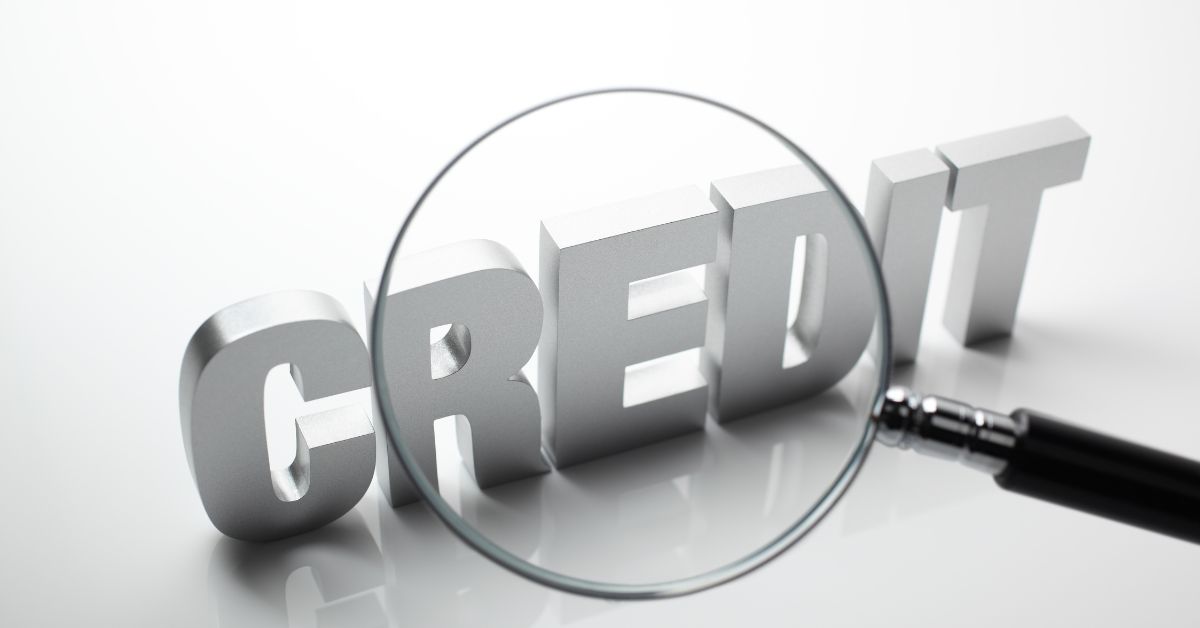
Use Credit Monitoring
There are many credit monitoring apps. Experian even offers one that sends updates on your credit usage and allows you to dispute inaccurate information.
Lock Your Credit File
Using a credit monitoring app like the Experian app, you can lock your credit file to prevent other people from using your information. If you lock your file, you must unlock it 24 hours before applying for credit. Otherwise, the company you are applying for credit from will not be able to access your information.
Only Pay Through Trusted Sites
Even on trusted websites, a cyber attack could leave your information vulnerable. So, if companies allow you to pay through PayPal, that is often a better way to protect your information while processing payments.
Shred Documents with Personal Information
When you receive mail with your personal information, shred it before you dispose of it. Identity thieves may steal your data off of documents you throw away. So, destroying any information that may be useful to them is always safest.
What Laws Govern Credit Reporting Agencies?
The Federal Trade Commission and FCRA govern creditors and reporting agencies. Suppose you dispute inaccurate information and the credit bureau does not remove it. In that case, you may be able to file a complaint with the FTC to have the agency remove the false information.
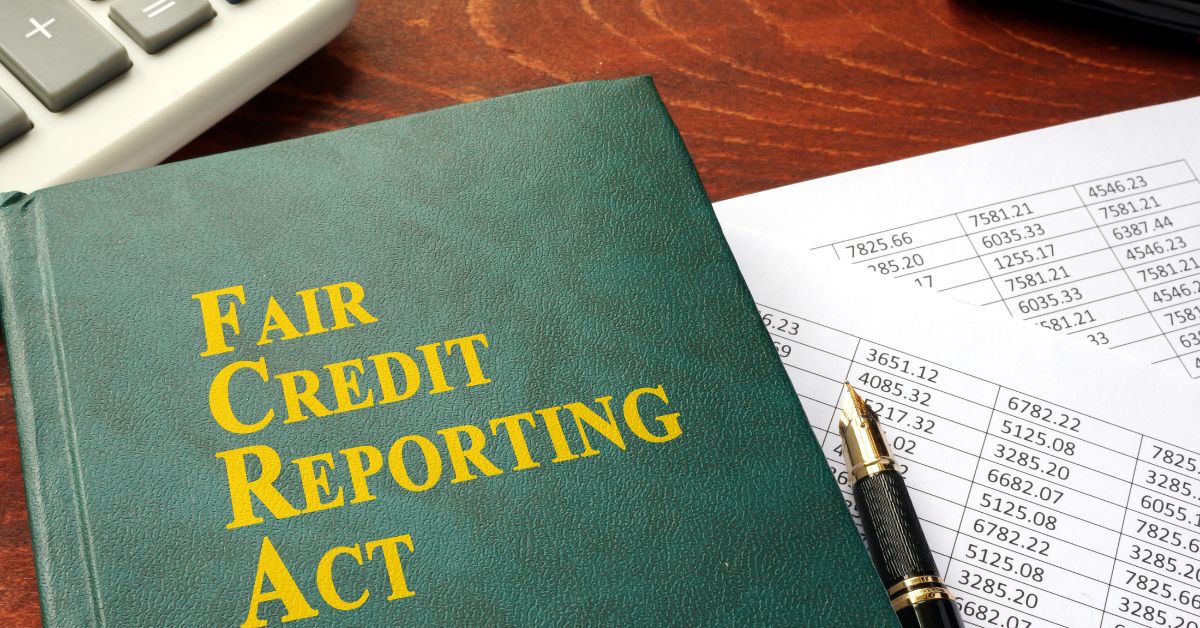
Do You Know What to Do When One Credit Burea Removes a Debt and the Others Don’t?
While there is no guarantee that disputing a debt to all three credit bureaus will result in the information being removed from each, you will have to submit a dispute to all three for them to start an investigation. If you have proof of identity theft, make sure you submit that with your dispute.
If the information remains on one or more reports after you file a dispute, do not panic. Old debts impact your credit report less than current debts. So, if you have a positive payment history over the past 24 months, your credit score will not be as heavily impacted by the older derogatory debts. Furthermore, creditors are more interested in the way you are currently managing your credit than your history.
So, even with an old debt on your credit profile, lenders will likely let you borrow money if you are proving to be credit-worthy by appropriately managing debt. You can also help your credit rating by not overutilizing credit. Instead, keep your card balances below 10 percent and wait to make purchases until you can afford to make them in cash.
Follow Learn Financial Strategy to learn about investing, managing your 401k, and other important personal finance matters.
